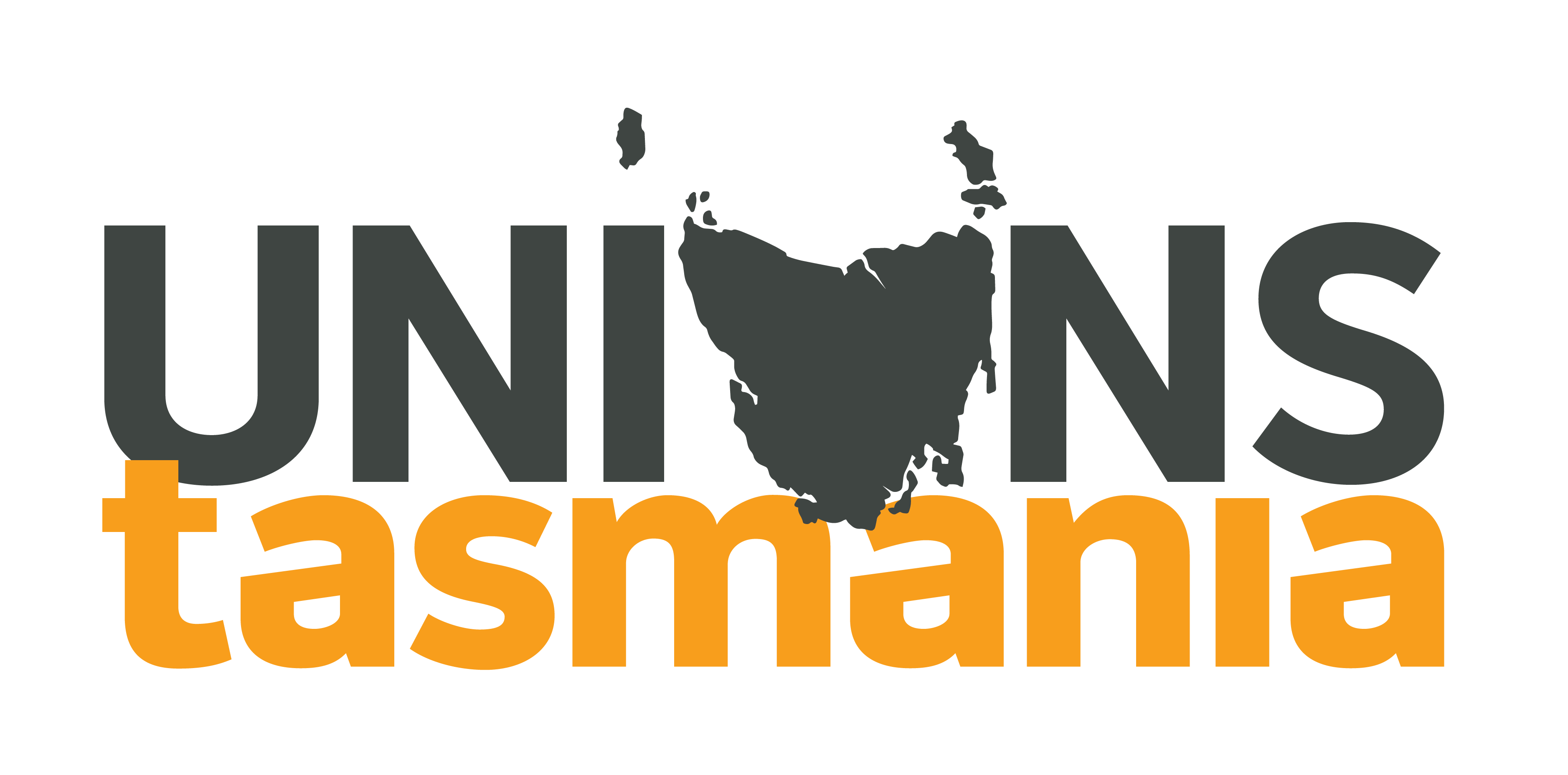Unions Tasmania
212 Liverpool Street
Hobart TAS 7000
Phone: 03 6216 7600
Email: [email protected]
Office hours: 8.30am to 5.00pm,
Monday to Friday or by appointment.
Get in Touch
212 Liverpool Street
Hobart TAS 7000
Phone: 03 6216 7600
Email: [email protected]
Office hours: 8.30am to 5.00pm,
Monday to Friday or by appointment.
Copyright © 2025 Unions Tasmania

